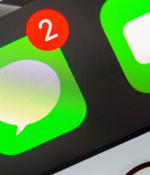Security News

The U.S. Commerce Department on Wednesday added four companies, including Israel-based spyware companies NSO Group and Candiru, to a list of entities engaging in "Malicious cyber activities." The agency said the two companies were added to the list based on evidence that "These entities developed and supplied spyware to foreign governments that used these tools to maliciously target government officials, journalists, businesspeople, activists, academics, and embassy workers."

The US government's Dept of Commerce on Wednesday sanctioned four companies in Israel, Russia, and Singapore for selling software used to break into computer systems and by foreign governments to suppress dissent. "The United States is committed to aggressively using export controls to hold companies accountable that develop, traffic, or use technologies to conduct malicious activities that threaten the cybersecurity of members of civil society, dissidents, government officials, and organizations here and abroad," said US Secretary of Commerce Gina Raimondo in a statement.

The U.S. has sanctioned four companies located in Israel, Russia, and Singapore for the development of spyware or the sale of hacking tools used by state-sponsored hacking groups. Israeli companies NSO Group and Candiru are being sanctioned for creating and selling spyware used to target journalists and activists.

Citizen Lab is reporting that a New York Times journalist was hacked with the NSO Group’s spyware Pegasus, probably by the Saudis. The world needs to do something about these cyberweapons arms...

A new national cyber strategy will be launched by year-end, the National Cyber Security Centre's chief exec has promised - while calling out spyware vendor NSO Group as a "Red flag" for the UK infosec community. Lindy Cameron told the Chatham House international affairs think tank that NSO Group was "Something we raised a red flag about before, that the commercial market for sophisticated cyber exploitation products is an issue."

NSO Group's Pegasus malware was used to spy on Dubai princess's lawyers during child custody dispute
Cherie Blair tipped off a Jordanian princess that the royal's estranged husband, the Sheikh of Dubai, had deployed NSO Group's Pegasus malware against her and her lawyers, a series of explosive High Court judgments [PDFs] have revealed. Sheikh Mohammed bin Rashid al Maktoum, the absolute ruler of Dubai, was found to have ordered the deployment of one of the world's most potent malware strains against Princess Haya bint Hussein, his former wife and a member of the Jordanian royal family, during a bitter court battle over custody of their children.

A malware peddler has created a fake website posing as Amnesty International to serve gullible marks with software that claims to protect users against NSO Group's Pegasus malware. Trading on fears about the Pegasus malware, this development takes the usual evolution of malware download lures and picks a particularly nasty vector, preying on those looking for protection against advanced threats.

Apple has released security updates to fix three zero-day vulnerabilities exploited in the wild by attackers to hack into iPhones and Macs running older iOS and macOS versions. Based on the info shared by Apple in today's security advisories [1, 2] at least one of the bugs was likely used to deploy NSO Pegasus spyware on hacked devices.

Apple on Monday issued security patches for its mobile and desktop operating systems, and for its WebKit browser engine, to address two security flaws, at least one of which was, it is said, used by autocratic governments to spy on human rights advocates. On August 24, 2021, researchers with the organization reported that the iPhones of nine Bahraini activists had been hacked between June 2020 and February 2021 using NSO Group's Pegasus spyware and two zero-click iMessage exploits.

Apple users should immediately update all their devices - iPhones, iPads, Macs and Apple Watches - to install an emergency patch for a zero-click zero-day exploited by NSO Group to install spyware. The security updates, pushed out by Apple on Monday, include iOS 14.8 for iPhones and iPads, as well as new updates for Apple Watch and macOS. The patches will fix at least one vulnerability that the tech behemoth said "May have been actively exploited."